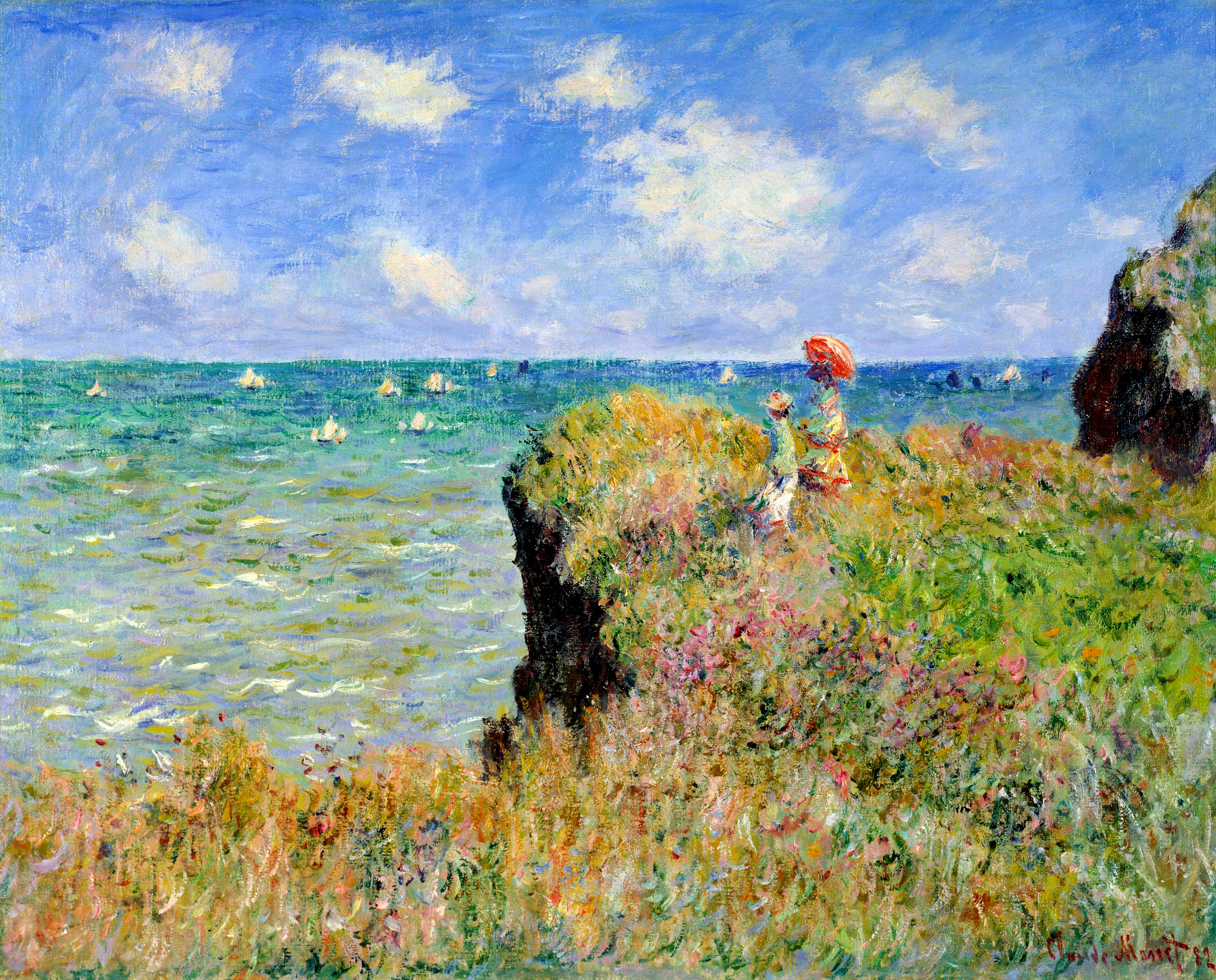Claude Monet - Clifftop Walk at Pourville 1882
 |
 |
 |
 |
 |
 |
 |

Clifftop Walk at Pourville 1882
66x82cm oil/canvas
Art Institute of Chicago
The image is only being used for informational and educational purposes
<< Previous G a l l e r y Next >>
From the Art Institute of Chicago :
In February 1882, Claude Monet went to Normandy to paint, one of many such expeditions that he made in the 1880s. This was also a retreat from personal and professional pressures. His wife, Camille, had died three years earlier, and Monet had entered into a domestic arrangement with Alice Hoschedé (whom he would marry in 1892, after her husband's death). France was in the midst of a lengthy economic recession that affected Monet's sales. In addition, the artist was unenthusiastic about the upcoming seventh Impressionist exhibition—divisions within the group had become pronounced by this time—and he delegated the responsibility for his contribution to his dealer, Paul Durand-Ruel.
Disappointed in the area around the harbor city of Dieppe, which he found too urban, Monet settled in Pourville and remained in this fishing village until mid-April. He became increasingly enamored of his surroundings, writing to Hoschedé and her children: "How beautiful the countryside is becoming, and what joy it would be for me to show you all its delightful nooks and crannies!" He was able to do so in June, when they joined him in Pourville.
The two young women strolling in Cliff Walk at Pourville are probably Marthe and Blanche, the eldest Hoschedé daughters. In this work, Monet addressed the problem of inserting figures into a landscape without disrupting the unity of its painterly surface. He integrated these elements with one another through texture and color. The grass—composed of short, brisk, curved brushstrokes—appears to quiver in the breeze, and subtly modified versions of the same strokes and hues suggest the women's wind-whipped dresses and shawls and the undulation of the sea. X-radiographs show that Monet reduced the rocky outcropping at the far right to balance the proportions of sea and sky.